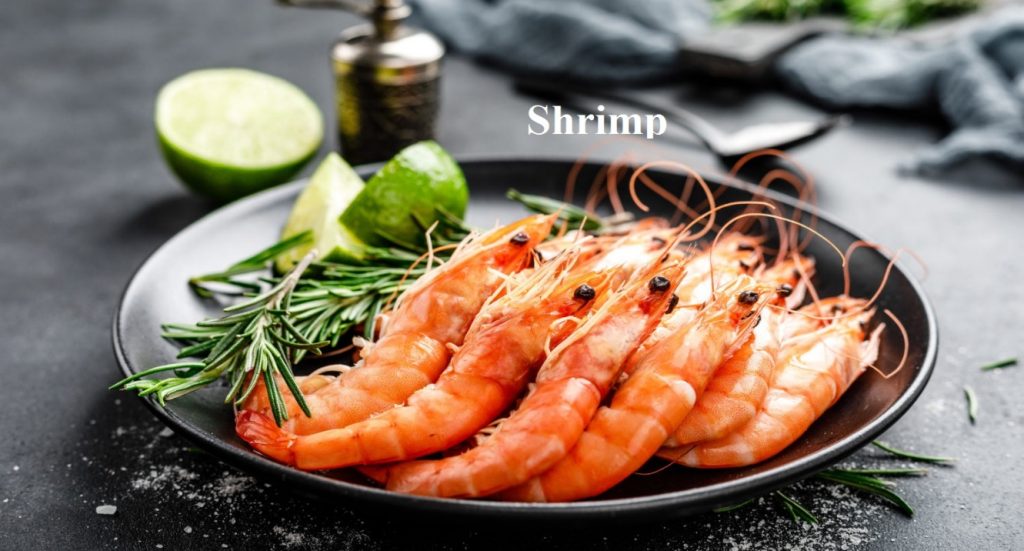Shrimp are small, decapod crustaceans that are widely consumed around the world. They are a popular seafood choice due to their delicate flavor and versatile culinary applications. Shrimp can be found in both freshwater and saltwater environments, and there are numerous species with varying sizes and colors.
Shrimp belong to the order Decapoda, and there are thousands of species found worldwide. They vary in size, ranging from tiny shrimp measuring a few centimeters to larger species several inches long.
Shrimp inhabit a wide range of environments, including coastal areas, estuaries, coral reefs, and the deep sea. Some species thrive in freshwater, while others are adapted to saltwater habitats. This adaptability contributes to the global availability and consumption of shrimp.
the popularity of shrimp in global cuisine, their economic importance, and their role in ecosystems make them a fascinating and integral part of the world’s aquatic biodiversity, Therefore Exporting shrimp involves several considerations to ensure the quality, safety, and compliance with regulations. Shrimp, like many seafood products, are highly perishable. Maintaining a consistent and controlled temperature throughout the supply chain is essential to prevent spoilage and ensure product safety. This involves using refrigerated transportation, storage facilities, and proper handling practices at every stage. Deviations from the optimal temperature can lead to the growth of bacteria and deterioration of the shrimp’s quality. Implementing a robust cold chain management system helps in preserving the freshness of the shrimp from harvest to the end consumer.
The successful export and import of shrimp, or any seafood for that matter, without spoilage involve careful handling, proper packaging, and adherence to international regulations. Here are some general guidelines:

For Exporting Shrimp
- Quality Control:
- Ensure that the shrimp meet the quality standards set by both the exporting and importing countries. This includes size, weight, and freshness.
- Proper Handling:
- Use proper handling procedures to minimize stress on the shrimp. Stress can lead to quality deterioration.
- Temperature Control:
- Maintain the cold chain throughout the export process. Shrimp are highly perishable, and maintaining a consistent, low temperature is crucial.
- Packaging:
- Use suitable packaging materials that provide insulation and protect the shrimp from contamination. Vacuum packaging or modified atmosphere packaging may be used to extend shelf life.
- Documentation:
- Ensure that all required export documentation, including health certificates, is in order. Compliance with international regulations is essential.
- Transportation:
- Choose reliable transportation methods that allow for temperature control. Refrigerated containers or air freight with temperature-controlled facilities are commonly used.
For Importing Shrimp
- Inspect Documentation:
- Check that all import documents, including health certificates, are in order. Ensure compliance with the importing country’s regulations.
- Temperature Control:
- Maintain proper temperature during transportation and storage. Inspect the condition of the shrimp upon arrival to ensure they haven’t thawed or been exposed to unfavorable conditions.
- Customs Clearance:
- Ensure smooth customs clearance by providing accurate and complete documentation. Follow the import regulations of the destination country.
- Storage and Distribution:
- Store shrimp in appropriate conditions upon arrival. Distribute them quickly to minimize storage time.
- Quality Checks:
- Conduct quality checks upon arrival. This may include sensory evaluation, microbiological tests, and other quality assessments to ensure the shrimp meet the required standards.
- Traceability:
- Maintain a traceability system to identify the source of the shrimp. This is crucial for food safety and recall purposes.
- Communication:
- Establish clear communication channels between exporters and importers to address any issues promptly.
Poly Next General Trading, a reputable entity headquartered in the United Arab Emirates, is a prominent player in the import and export sector. Upholding a steadfast commitment to excellence, we take pride in providing unparalleled services that set new benchmarks in the realm of international trade.

